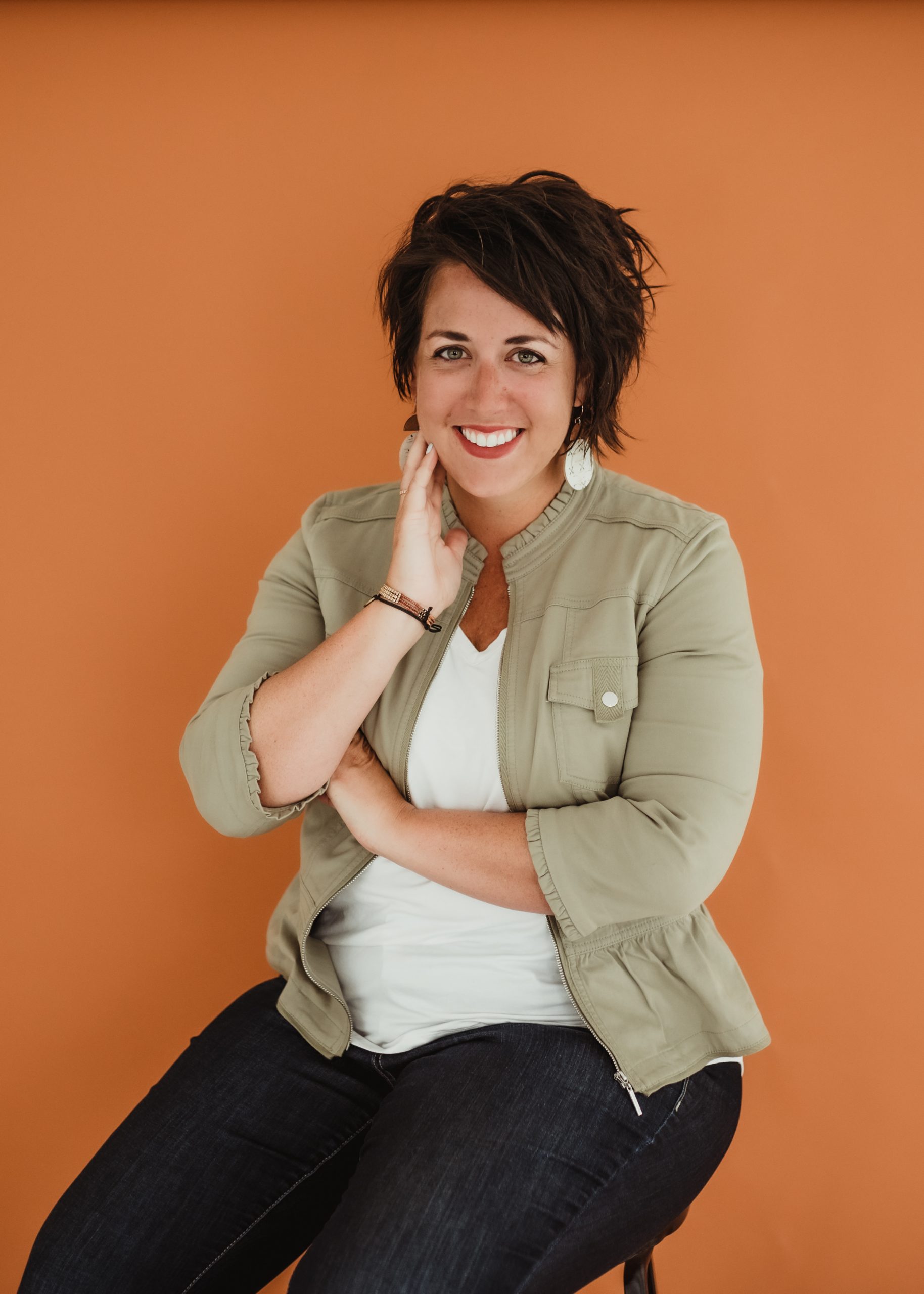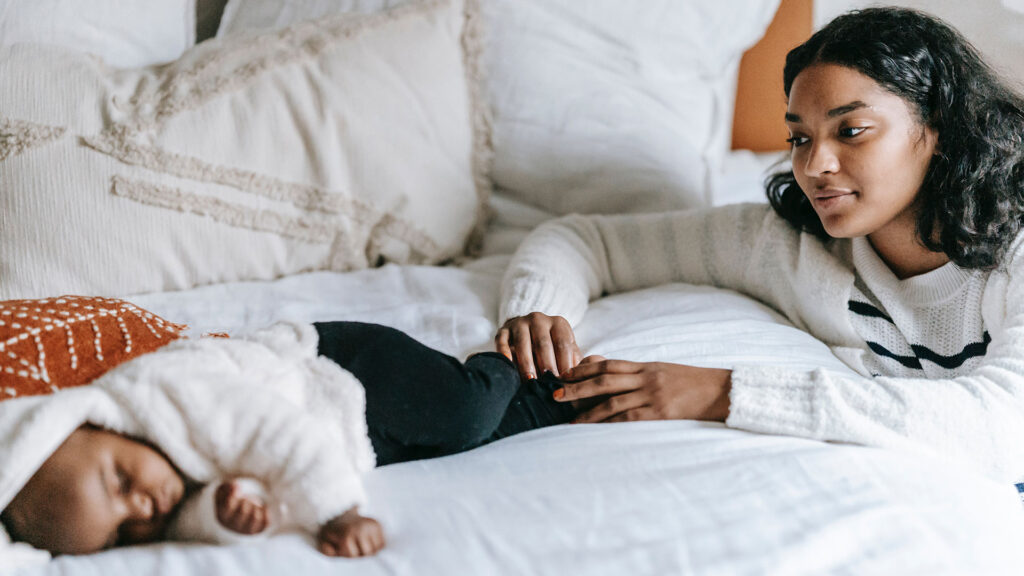
The thoughts were incessant — “intrusive,” my therapist suggested. They were of death and separation, from SIDS to car accidents to my still tiny kids overdosing decades from now. They were ridiculous and dark, meaningful and trivial, all at once. I felt crazy. After all, it was my fifth child.
So, I didn’t really believe the doctors who said I had postpartum depression and anxiety. “But I’ve never had that before,” I said. “Neither do people with cancer when they get it the first time,” she replied. Point taken. I had become the one in seven mothers who have a postpartum mental health condition (1). I didn’t know how or why, or what might be different this time, especially when I’d had the best birth story yet, and a reasonably easy physical recovery.
With some careful observation, journaling, and therapy, I noticed these thoughts, distracting from the joy of my sweet-smelling newborn, my first daughter after four sons, came specifically in the evening. I was handed the depression screener all new moms encounter at their six-week postpartum visit, where I responded to questions like “I have been so unhappy that I have had difficulty sleeping,” and “I have felt scared or panicky for no good reason.” Yes and yes. Of course, I “failed” the test, and was prescribed an antidepressant.
Weeks later, I returned to retake it, only to score similarly. I was perplexed — why wasn’t typical treatment, including therapy and medicine, working? She tried a different medicine, which also didn’t work. Then, the doctor asked about my sleep and diet. Like many new moms, grabbing a protein bar and a nap to stave off sheer exhaustion and starvation seemed like a valid answer. She suggested that instead of doing all this mental work to combat stressful thoughts in the evening, I do something my grandma would’ve advised me as a teen watching too many movies at night. Go to bed.
At first I shrugged it off. Then, around 8 p.m., when my daughter fell asleep for the night, soon to wake hours later, multiple times, to breastfeed, I wondered what would happen if I went to bed when she did. It was the most basic thought, and it felt strange to go to bed with the sun when I’d normally still be overseeing my other kids’ homework or tossing a ball with them outside. But, when I woke up in the morning, even with those multiple wake-ups, the cloud had lifted.
In the coming weeks, I prioritized that bedtime, as inconvenient as it was, sneaking in up to three additional hours of sleep, though I’d have preferred to binge-watch Netflix and enjoy a few kid-free hours into the evening. But three extra hours compounded to 21 full extra hours per week, the equivalent of 2-3 additional full nights of rest. I was on my way to combating sleep debt, and postpartum depression.
Then, as a health journalist, I went on a mission to figure out why that would work. I found out that in a study of more than 1,400 postpartum women, both fatigue and sleep quality were risk factors in developing postpartum depression (2). Though that seems obvious (because, well, babies), they go on to explain that it’s a bit more complicated than waking for diaper changes and feeding — sleep issues are due to physiological changes, cultural issues, and family commitments, researchers wrote in the discussion, in addition to a drop in certain hormones, chores, and job-related responsibilities. In short, the lack of supports available for moms postpartum, from accessible postpartum doula care, to limited visits with their OBGYNs (one appointment at six weeks?!) to limited paid maternity leave and affordable childcare, just touch the surface of the layered issue.
Yet, sleep plays a key role in treatment nonetheless. Katrina Rollins, Board-Certified Nurse Practitioner & Nurse Midwife, and pH-D Feminine Health Advisor explains that it’s actually a well-known and critical component of treatment.
“Not having enough sleep can increase irritability, cognitive dysfunction, and the risk of mood disorders — postpartum depression and/or anxiety — by disrupting hormones.” Those dang hormones, sneaking into all of my problems.
Strangely, sleeping when the baby sleeps, age old advice, she says, was exactly what I needed to do. But, I’d always only pictured that as a naptime to-do, which is wildly illogical when you have a houseful of other kids, dishes that are ridiculously high, and well, a job. So, I’d brushed it off, when it was wisdom stronger than my medicine.
And it’s possible that in spite of trying two types, the medicine still just wasn’t the right one. This is partially why parents and providers both are excited about the recent approval of the first oral medication used specifically to treat postpartum depression, called Zuranolone. Unfortunately, my specific incident is a bit too soon to determine if the new medication is safe for breastfeeding — scientists still aren’t sure. But, just because medicine didn’t work as well for me doesn’t mean that others with postpartum depression and anxiety should be dissuaded from trying it. Rather, I’m just suggesting that sleep was an underlying cause I didn’t consider. Increasing and improving access to treatment is a must, in fact, as only half of women with the condition receive treatment (3). To move towards accessing treatment, more women need to know the symptoms to begin with.
Once someone has a diagnosis, Rollins says there are some tangible to-dos that might be part of a greater treatment plan to get more sleep, along with additional interventions. I tried this, and many helped:
- Having a solid nighttime routine in place with designated roles can help prevent one parent from feeling overwhelmed. If a parent is single, consider using your “chips” to enlist help during those later hours in the day, if you have a family member or friend who can rock the baby while you take a shower to wind down.
- If breastfeeding, a bedside bassinet can make night feedings less disruptive to sleep by enabling the parent to stay in bed, Rollins says. “The baby can be safely placed back in the bassinet after feeding.”
- Parents can also lean on their support system to help with household chores so they really can sleep when the baby sleeps.
- Having a supportive mattress, low lighting, comfortable temperature setting, blackout curtains, and engaging in a relaxing activity or deep breathing before bed can help sleep be more restorative.
- Consider bringing your partner to your appointment to talk about the role of sleep in treatment — they might be surprised how much it matters, and step up more.
But, as previously stated, sleep improvement should be instead of, but in addition to, talking to your provider. “Most importantly, parents should discuss their symptoms with their healthcare provider to screen for and treat any postpartum mood disorders,” Rollins says. Though it can be tempting to head for a nap rather than heading to the doctor, your happiness and quality of life depends on it.
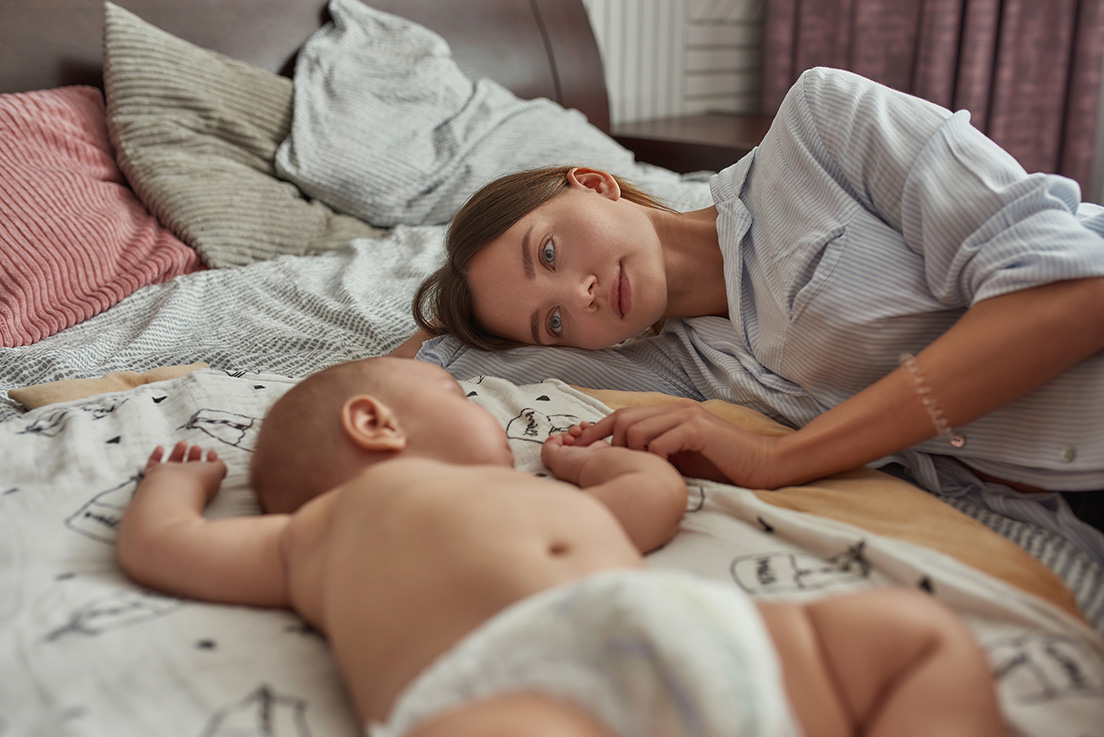
Beating Postpartum Insomnia: Our Expert-Backed Tips
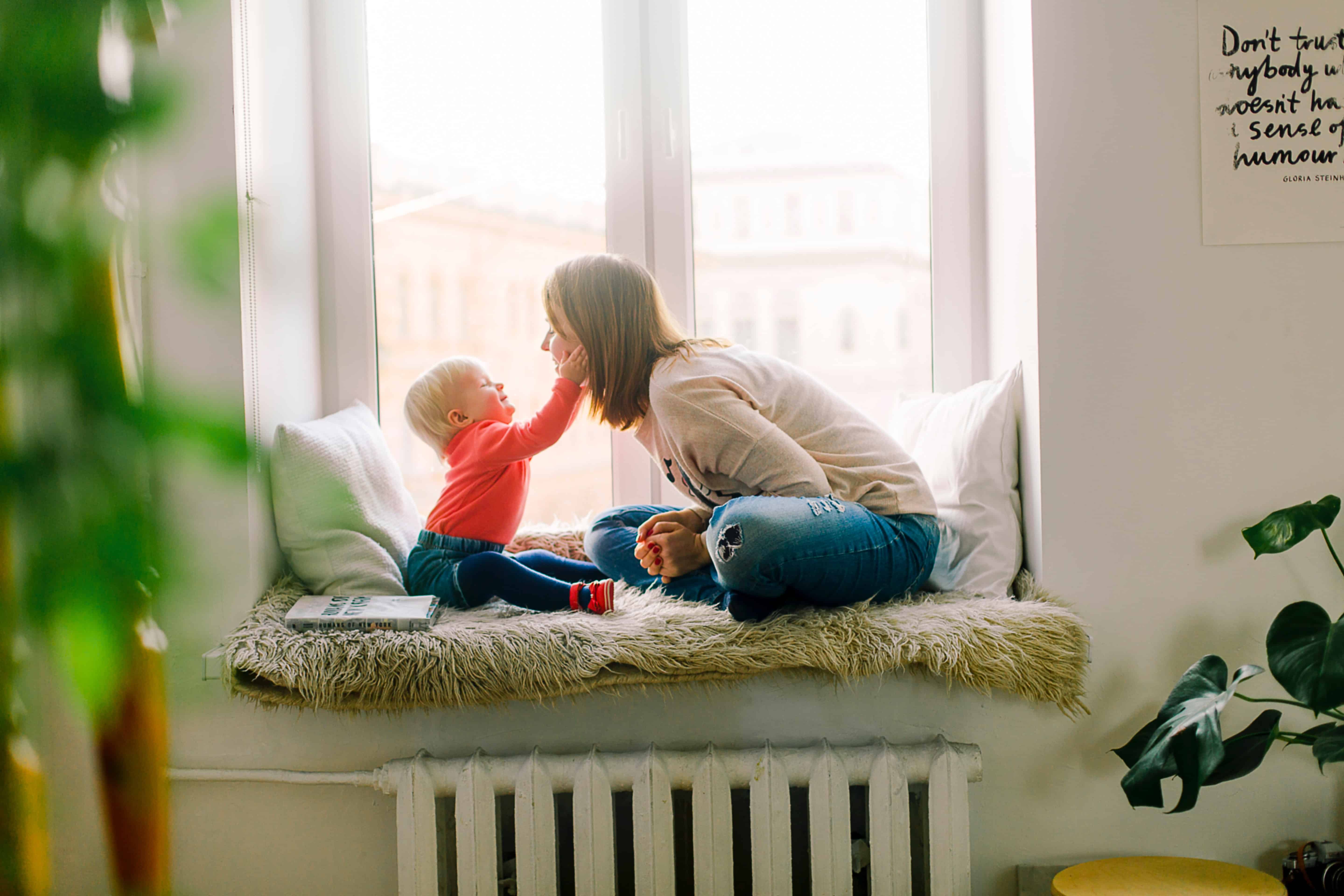
Introducing the Postpartum Hotel: Where Parents Get More Sleep and Nutrition — With One Catch
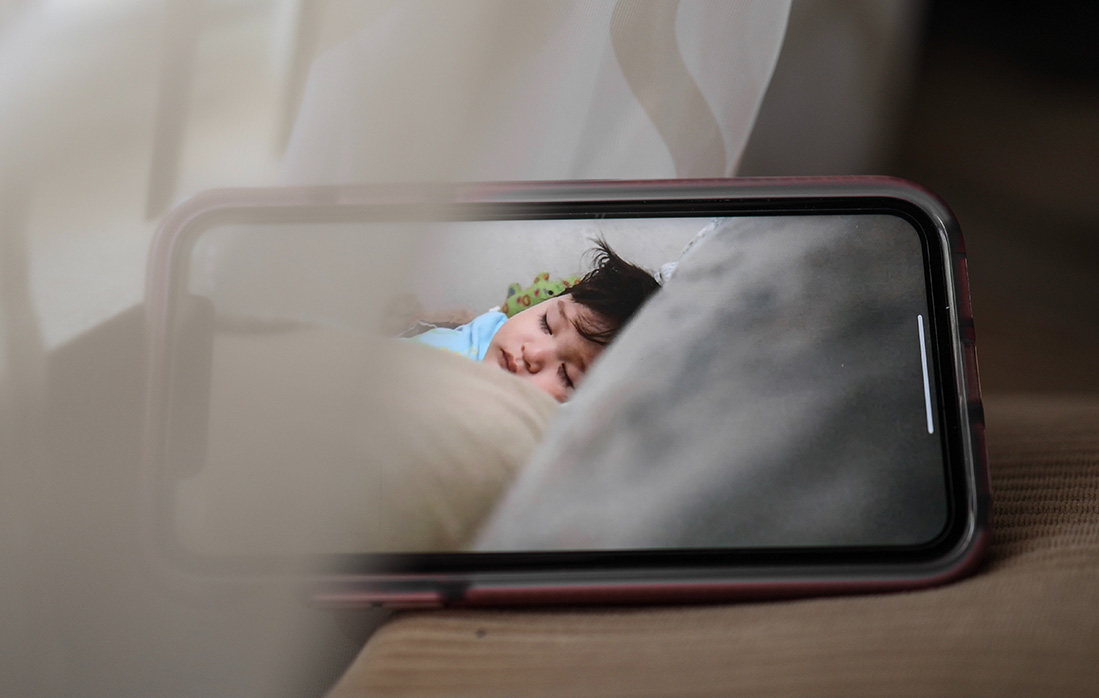
Baby Sleep Safety: Everything to Know in 2024
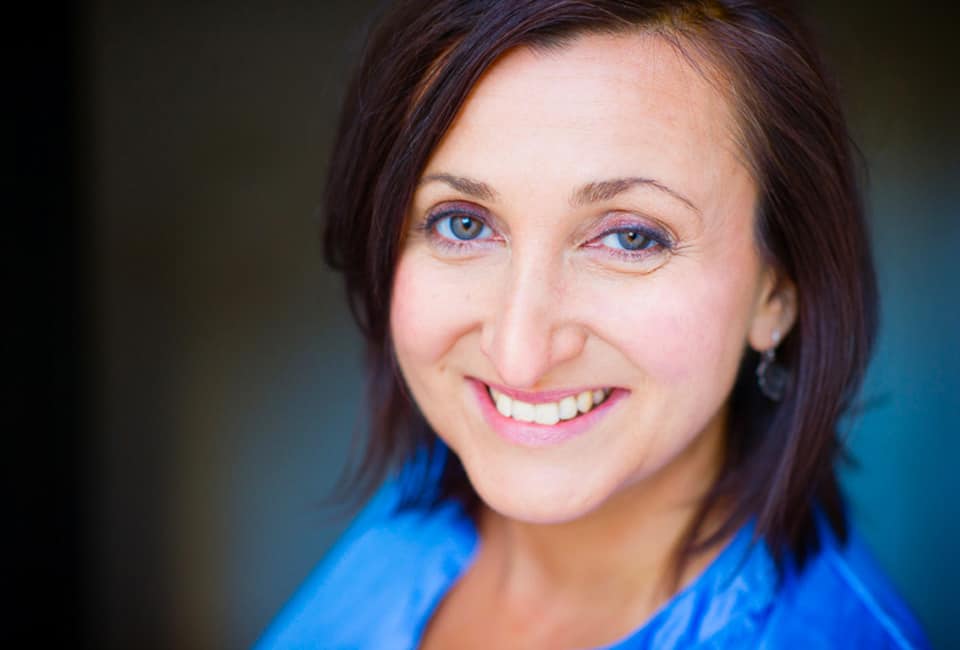
An Interview with Expert Baby Sleep Trainer and “Mommywise” Founder Natalie Nevares
